Audi Q4 e-tron vs Peugeot 3008 - Differences and prices compared
Compare performance (340 HP vs 325 HP), boot space and price (39600 £ vs 35100 £ ) at a glance. Find out which car is the better choice for you – Audi Q4 e-tron or Peugeot 3008?
Costs and Efficiency:
Price and efficiency are key factors when choosing a car – and this is often where the real differences emerge.
Peugeot 3008 has a slightly advantage in terms of price – it starts at 35100 £ , while the Audi Q4 e-tron costs 39600 £ . That’s a price difference of around 4415 £.
In terms of energy consumption, the advantage goes to the Audi Q4 e-tron: with 15.90 kWh per 100 km, it’s minimal more efficient than the Peugeot 3008 with 16.90 kWh. That’s a difference of about 1 kWh.
As for electric range, the Peugeot 3008 performs distinct better – achieving up to 698 km, about 144 km more than the Audi Q4 e-tron.
Engine and Performance:
Power, torque and acceleration are the classic benchmarks for car enthusiasts – and here, some clear differences start to show.
When it comes to engine power, the Audi Q4 e-tron has a minimal edge – offering 340 HP compared to 325 HP. That’s roughly 15 HP more horsepower.
In acceleration from 0 to 100 km/h, the Audi Q4 e-tron is somewhat quicker – completing the sprint in 5.40 s, while the Peugeot 3008 takes 6 s. That’s about 0.60 s faster.
In terms of top speed, the Peugeot 3008 performs to a small extent better – reaching 220 km/h, while the Audi Q4 e-tron tops out at 180 km/h. The difference is around 40 km/h.
There’s also a difference in torque: Audi Q4 e-tron pulls noticeable stronger with 679 Nm compared to 511 Nm. That’s about 168 Nm difference.
Space and Everyday Use:
Whether family car or daily driver – which one offers more room, flexibility and comfort?
Both vehicles offer seating for 5 people.
In curb weight, Peugeot 3008 is distinct lighter – 1648 kg compared to 2035 kg. The difference is around 387 kg.
In terms of boot space, the Audi Q4 e-tron offers slight more room – 535 L compared to 520 L. That’s a difference of about 15 L.
In maximum load capacity, the Audi Q4 e-tron performs barely noticeable better – up to 1490 L, which is about 10 L more than the Peugeot 3008.
When it comes to payload, Audi Q4 e-tron minimal takes the win – 515 kg compared to 467 kg. That’s a difference of about 48 kg.
Who wins the race in the data check?
The Peugeot 3008 is slightly ahead in the objective data comparison.
This result only shows which model scores more points on paper – not which of the two cars feels right for you.
Costs and Consumption
View detailed analysis
Engine and Performance
View detailed analysis
Dimensions and Body
View detailed analysis
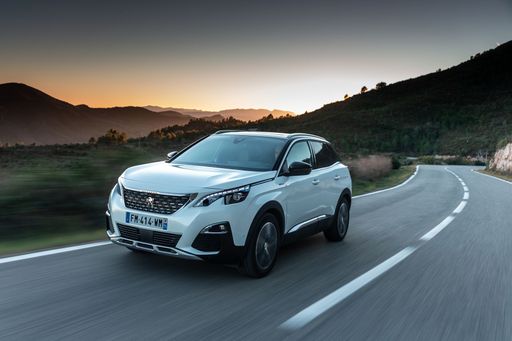
Peugeot 3008
Audi Q4 e-tron
The Audi Q4 e-tron brings Audi polish into the electric crossover scene, pairing a sleek exterior with a refined, airy interior that makes everyday driving feel distinctly premium. It’s an easy-to-live-with EV that balances comfort and real-world usability with intuitive tech, making it a smart choice for buyers who want electric mobility without giving up Audi character — and yes, it still looks good in the driveway.
details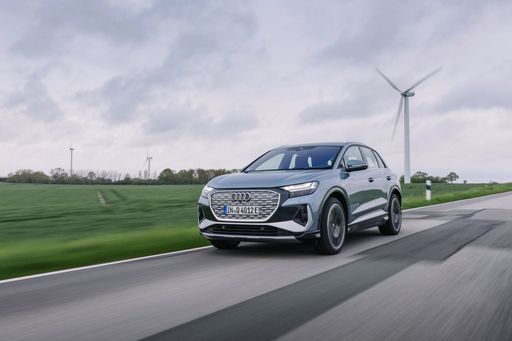
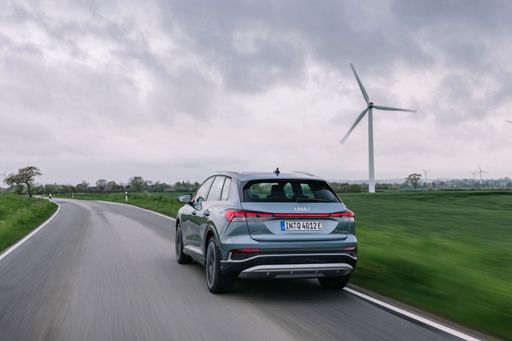
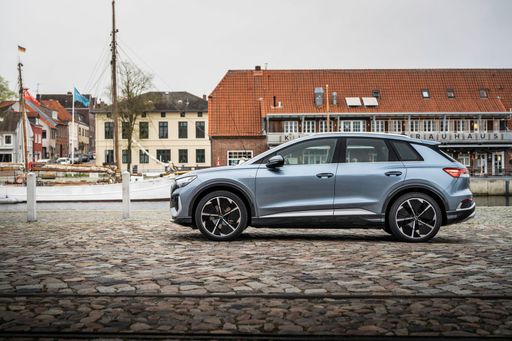
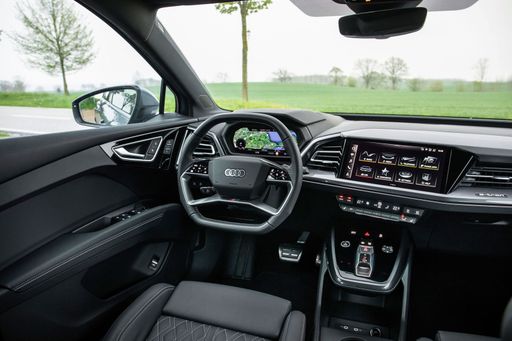
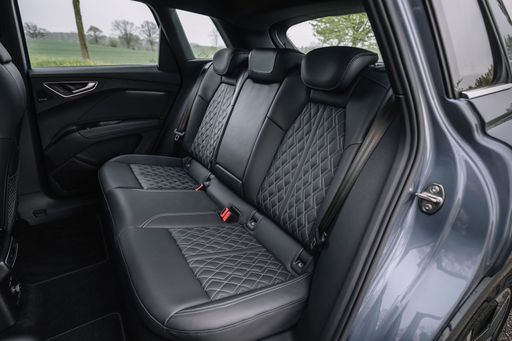
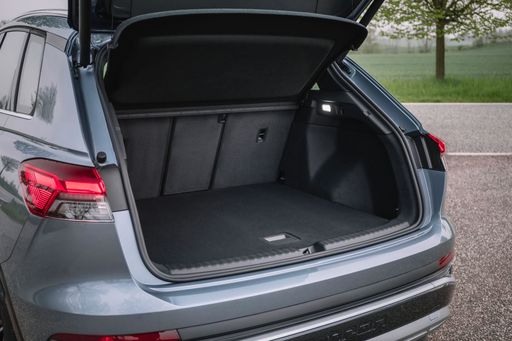
Peugeot 3008
The Peugeot 3008 blends bold French styling with a surprisingly grown-up interior that makes even dull commutes feel a little bit special. Practical enough for family life yet lively to drive, it’s a clever all‑rounder that stands out from the crossover crowd without shouting for attention.
details
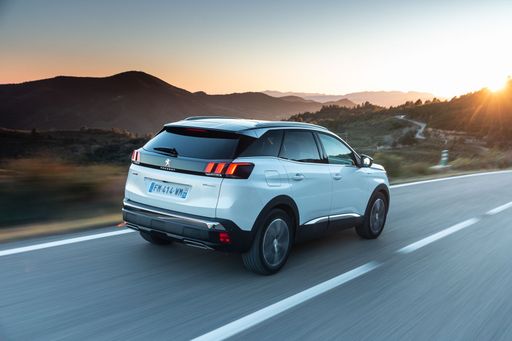

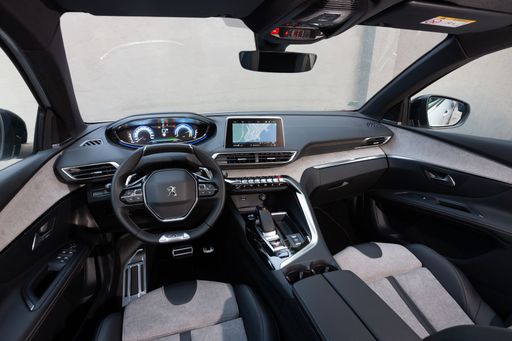
Costs and Consumption |
|
|---|---|
|
Price
39600 - 58800 £
|
Price
35100 - 52000 £
|
|
Consumption L/100km
-
|
Consumption L/100km
2.4 - 5.4 L
|
|
Consumption kWh/100km
15.9 - 17.4 kWh
|
Consumption kWh/100km
16.9 - 17.6 kWh
|
|
Electric Range
406 - 554 km
|
Electric Range
81 - 698 km
|
|
Battery Capacity
59 - 77 kWh
|
Battery Capacity
0.4 - 96.9 kWh
|
|
co2
0 g/km
|
co2
0 - 121 g/km
|
|
Fuel tank capacity
-
|
Fuel tank capacity
55 L
|
Dimensions and Body |
|
|---|---|
|
Body Type
SUV
|
Body Type
SUV
|
|
Seats
5
|
Seats
5
|
|
Doors
5
|
Doors
5
|
|
Curb weight
2035 - 2235 kg
|
Curb weight
1648 - 2266 kg
|
|
Trunk capacity
520 - 535 L
|
Trunk capacity
470 - 520 L
|
|
Length
4588 mm
|
Length
4542 mm
|
|
Width
1865 mm
|
Width
1895 mm
|
|
Height
1614 - 1632 mm
|
Height
1641 mm
|
|
Max trunk capacity
1460 - 1490 L
|
Max trunk capacity
1430 - 1480 L
|
|
Payload
505 - 515 kg
|
Payload
432 - 467 kg
|
Engine and Performance |
|
|---|---|
|
Engine Type
Electric
|
Engine Type
Electric, Petrol MHEV, Plugin Hybrid
|
|
Transmission
Automatic
|
Transmission
Automatic
|
|
Transmission Detail
Reduction Gearbox
|
Transmission Detail
Reduction Gearbox, Dual-Clutch Automatic
|
|
Drive Type
Rear-Wheel Drive, All-Wheel Drive
|
Drive Type
Front-Wheel Drive, All-Wheel Drive
|
|
Power HP
204 - 340 HP
|
Power HP
145 - 325 HP
|
|
Acceleration 0-100km/h
5.4 - 8.1 s
|
Acceleration 0-100km/h
6 - 10.2 s
|
|
Max Speed
160 - 180 km/h
|
Max Speed
170 - 220 km/h
|
|
Torque
310 - 679 Nm
|
Torque
230 - 511 Nm
|
|
Number of Cylinders
-
|
Number of Cylinders
3 - 4
|
|
Power kW
150 - 250 kW
|
Power kW
107 - 239 kW
|
|
Engine capacity
-
|
Engine capacity
1199 - 1598 cm3
|
General |
|
|---|---|
|
Model Year
2023 - 2025
|
Model Year
2024 - 2025
|
|
CO2 Efficiency Class
A
|
CO2 Efficiency Class
A, D, B
|
|
Brand
Audi
|
Brand
Peugeot
|
What drive types are available for the Audi Q4 e-tron?
The Audi Q4 e-tron is offered with Rear-Wheel Drive or All-Wheel Drive.




